iPhone 11 vs iPhone 11 Pro: which should you buy?
Does the iPhone 11 Pro offer enough to justify the extra cash?
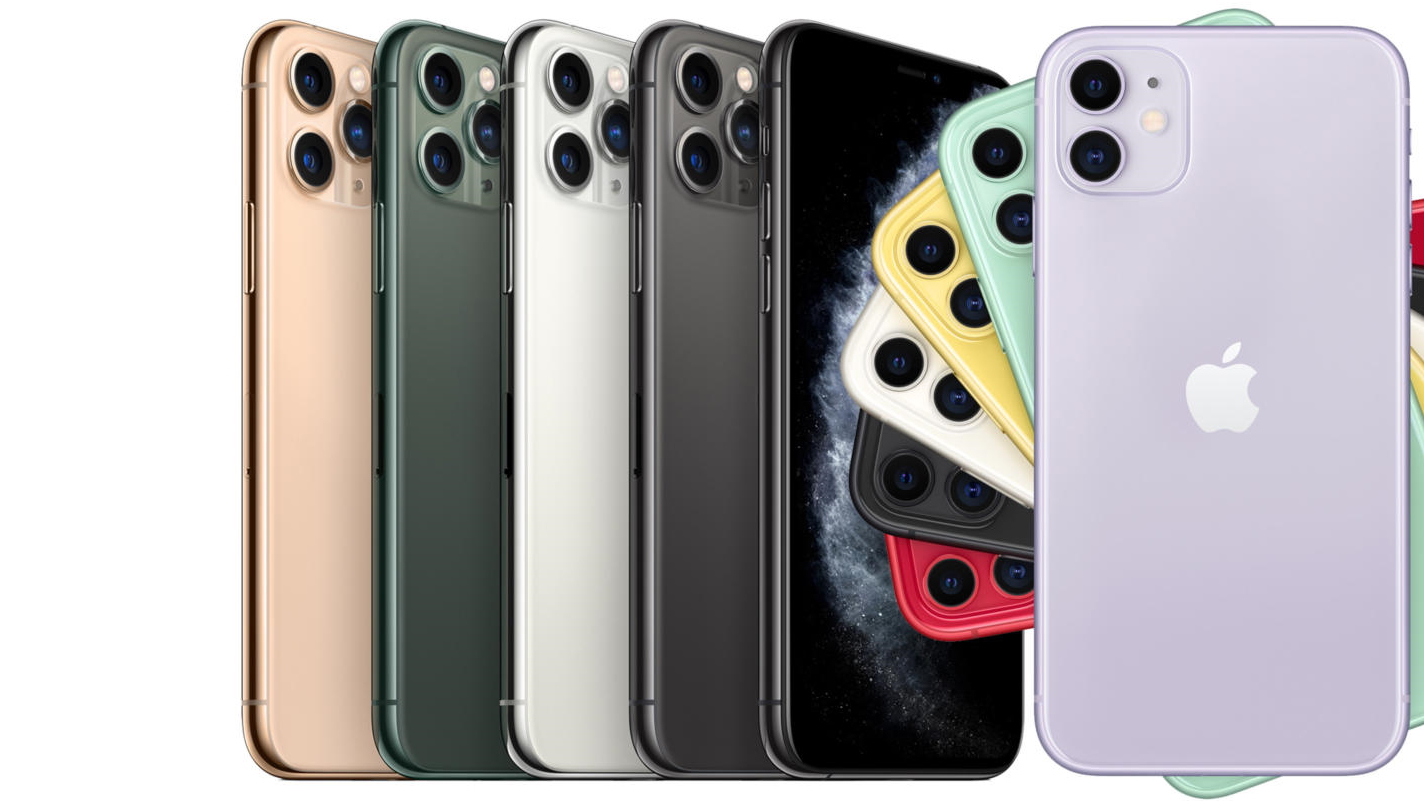
So you're upgrading to an iPhone 11, but is it worth shelling out the extra cash for the iPhone 11 Pro? With two vastly differing price tags and a range of features setting them apart, each of Apple's latest releases are geared towards different buyers. Figuring out which camp you find yourself in can be hard, which is why we're giving you a complete rundown of exactly what separates the iPhone 11 vs iPhone 11 Pro and who should be buying which device.
The iPhone 11 is currently available for $699 / £729 / AU$1,199 meanwhile the Pro version will set you back $999 / £1,049 / AU$1,749. That's a considerable price difference that brings the Pro firmly into the premium range. Whether or not these prices will change with the launch of the iPhone 12 remains to be seen (the previous iPhone XR dropped by about $100 following the iPhone 11's launch).
What we do know from getting to grips with both, however, is that these devices are targeted towards two different types of buyer, and we're here to help you determine which one you are.
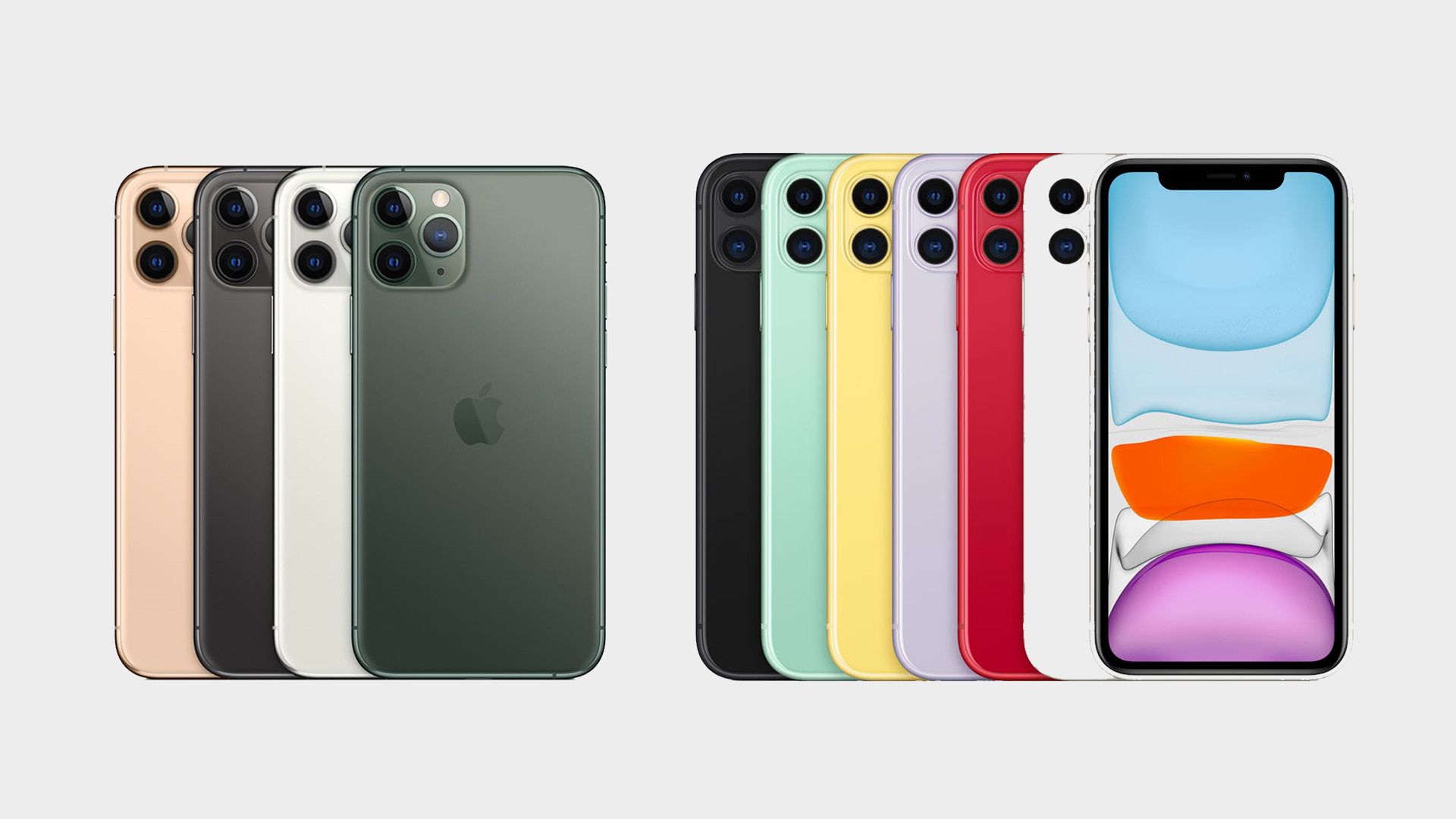
iPhone 11 vs iPhone 11 Pro: Design
The iPhone 11 looks very similar to its predecessor the iPhone XR, and that's because it is - in the design department anyway. You're picking up pretty much the exact same chassis as the previous iPhone here - bezels and all - albeit one coated in a slightly lighter color finish and with a windowed notch housing an extra camera on the back.
Compared to the iPhone 11 Pro, this parallel design does begin to feel a little dated. You're dropping a few display inches when you grab the new stainless steel chassis, but the overall feel that that design lends itself to is one of noticeable luxury.
That said, whether or not that luxury is worth the extra $300 you're putting on the table is debatable. You're dropping your display size here, so if you're looking for the big screen treatment you might be disappointed (and you might have to shell out an extra $400 for the iPhone 11 Pro Max).
However, it's worth mentioning that squeezing down that display size does allow for a particularly gorgeous panel. There's a 5.8-inch OLED Super Retina XDR screen on the iPhone 11 Pro, with 2436 x 1125 resolution packed in. That's compared to a larger but less sensational 6.1-inch Liquid Retina display at 1792 x 828 on the iPhone 11.
Weekly digests, tales from the communities you love, and more
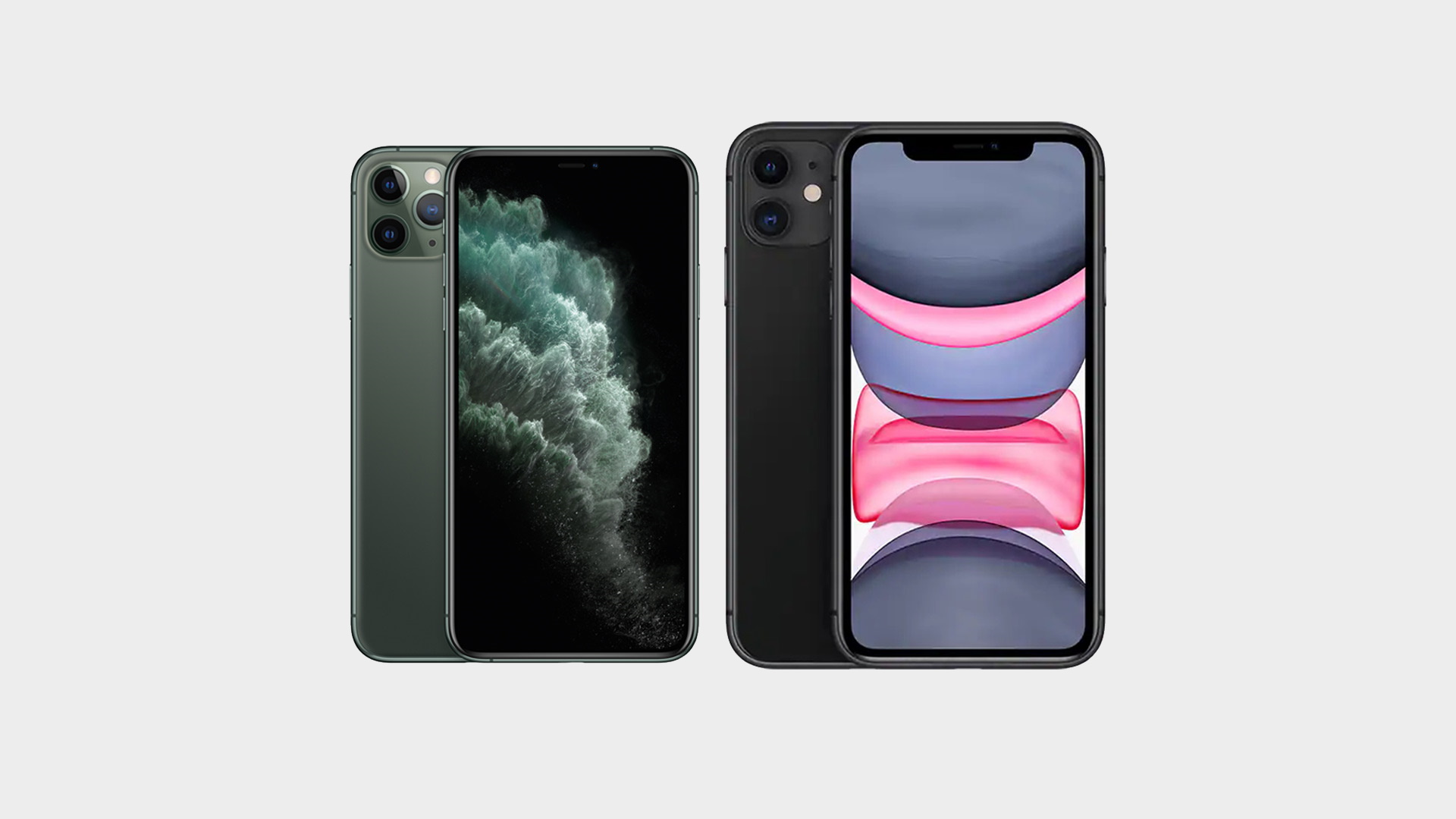
In practice, you will notice these differences side by side. As one would expect from vastly superior display technology, the Pro makes everything look crisper, from gaming to Netflix. Deeper blacks and more dynamic color contrast extend beyond the home screen (which even still looks fantastic) to all the high resolution content you can expect to enjoy here.
Noticing these differences side by side is very different to picking one over the very much more affordable other, however. If you're upgrading from an iPhone 7 or 8 you'll still be in good hands with the iPhone 11 - the differences immediately recognizable. However, if you're coming from one of the more premium iPhone X lines you might want to consider upping your game with the Pro.
iPhone 11 vs iPhone 11 Pro: Features
While there are certain software and hardware features, particularly when it comes to the camera, that you may miss if you opt for the cheaper model, you're still getting all the power under the hood you need to run all your usual apps. Both of these devices use Apple's latest A13 Bionic chip, so you can expect similar performance across both the iPhone 11 and iPhone 11 Pro. We did generally notice that things felt a lot tighter on the Pro model, but that's largely down to the boosted display.
One of the main differences between the two models, however, lies in that camera. You're getting an extra telephoto lense on the Pro version, bringing a 4x optical zoom that plainly outperforms the 0.5x to 1.0x options on the 11. It's not quite Samsung level quality, but if you're going to prioritize your phone decision by camera, it's a major factor to consider.
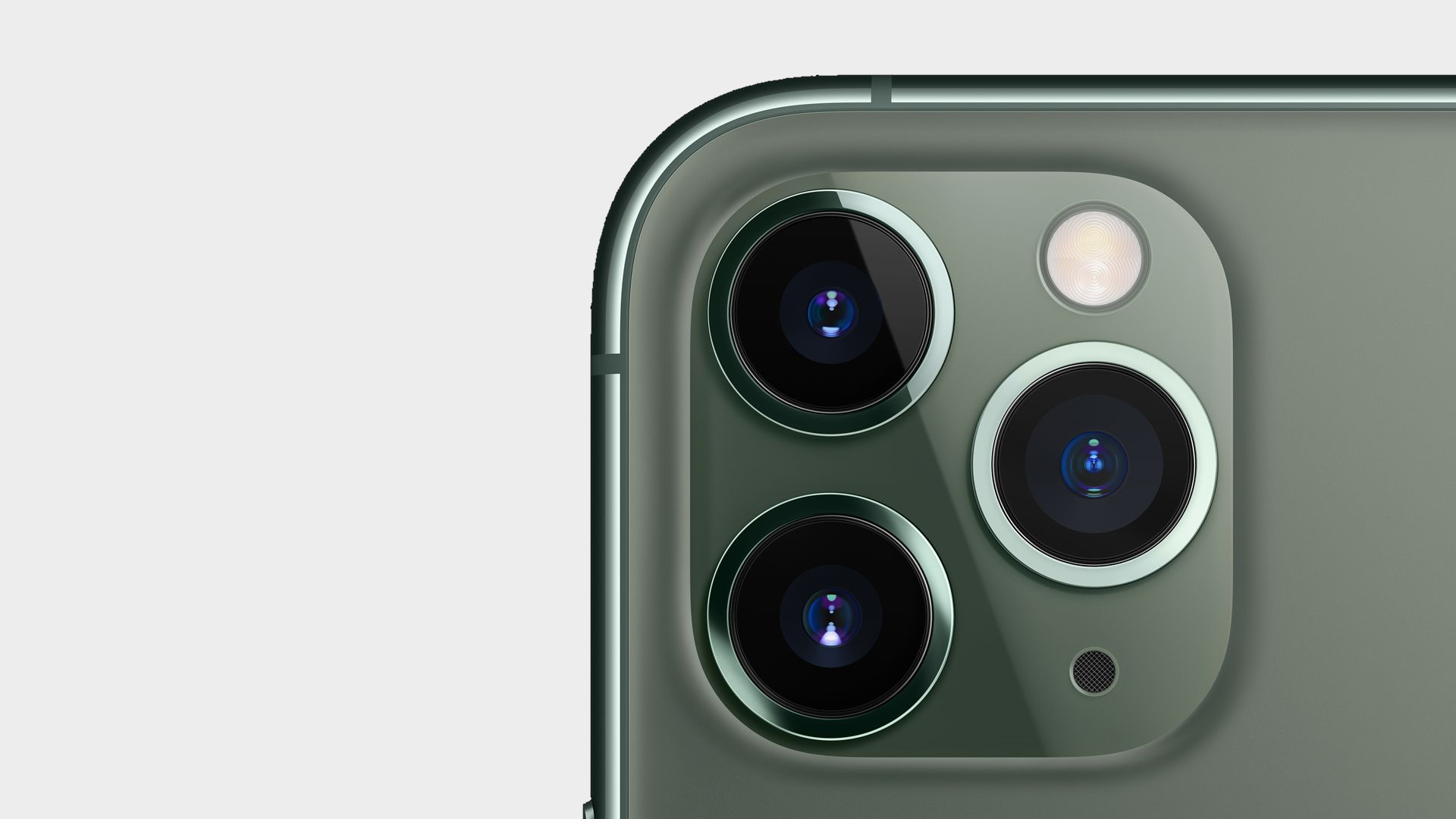
Ultra-wide shots hold up well against usual difficulties with exposure and warping, meanwhile a fully zoomed in shot will still come out impressively detailed as well. You do, of course, still benefit from a weaker implementation of this feature on the standard iPhone 11, however, so those curious but unsure of how much they would actually use all three lenses can still save themselves some cash.
In general that extra information coming into the iPhone 11 Pro does offer up some particularly crisp shots. However, with the rest of the camera's features - portrait mode, low light shooting, 4k video and 60fps - being shared across the two devices, we'd only really recommend spending the extra cash if you're likely to be using the camera to its full capacity.
iPhone 11 vs iPhone 11 Pro: Performance
As mentioned previously, both of these iPhones use Apple's latest A13 Bionic processor. That means you won't see much of an everyday performance enhancement even if you shell out the extra $300.
However if you do need your iPhone for more demanding apps or workflows, it might be worth investing in the Pro for the extra 512GB option on offer (the iPhone 11 is only available in 64GB or 256GB configurations). Not only that, but you'll notice a marked improvement in the battery life of the more expensive device. The iPhone 11 can net you up to 17 hours of video playback, which translated in our testing to just under 24 hours of light everyday usage.
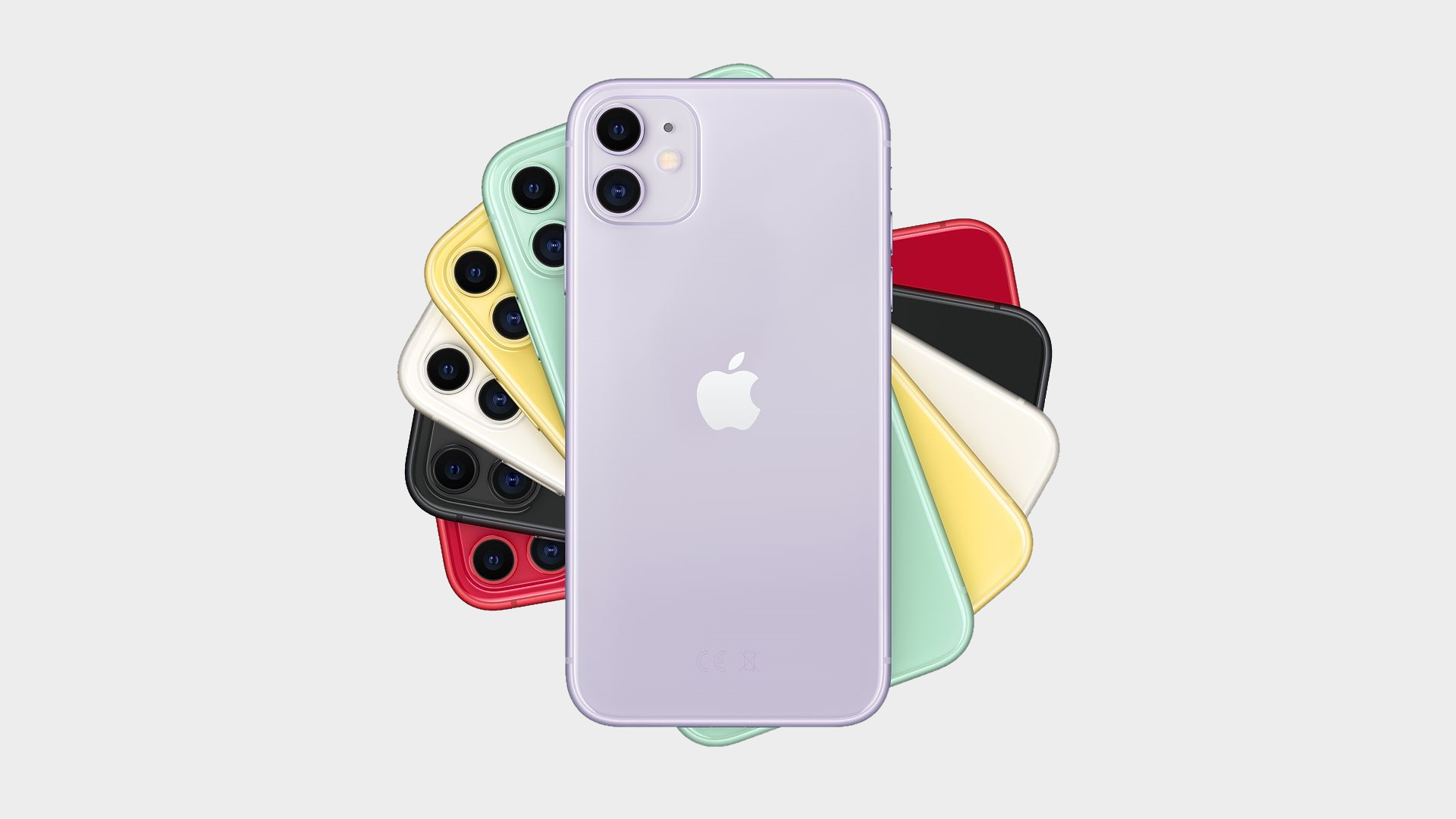
That's no mean feat by itself, and would certainly outlast anyone who's grown accustomed to charging their phone at night's needs. However, if you are going to be shooting a lot of 4K 60fps footage, or blasting through high-performance games at full brightness, the 11 Pro offered an extra five to six hours extra in the same everyday settings. That means more screen on time overall. Both phones are worthy of a place on our best gaming phone guide to be fair.
iPhone 11 vs iPhone 11 Pro: which should you buy?
The iPhone 11 is the go-to upgrade for the vast majority of Apple fans for a reason. It's priced particularly well, offers plenty of upgrades over the previous generation, and adds extra hardware features in the form of that secondary lense. If you're upgrading from an iPhone 7, 8, or 8 Plus you'll notice these improvements more than someone coming from an iPhone XS, though XR power users will also appreciate a difference as well.
If, however, you're hitting the iPhone 11 line from the iPhone XS or XS Max and you're used to best in class photography with all the trimmings, or you're simply a content creator or heavier phone user than most, the investment in the Pro's camera, display, and battery life could well be worth the extra cash.
Check out our full iPhone 11 review for more information on Apple's phone. Or if you're looking for an even smaller iPhone, but with a modern chipset, check out our iPhone SE review on the new 2020 model.
Or if you're in the mood to buy then we've rounded up the latest iPhone SE prices and deals and also the best iPhone 11 deals for every model in the 11 line.

Managing Editor of Hardware at GamesRadar+, I originally landed in hardware at our sister site TechRadar before moving over to GamesRadar. In between, I've written for Tom’s Guide, Wireframe, The Indie Game Website and That Video Game Blog, covering everything from the PS5 launch to the Apple Pencil. Now, i'm focused on Nintendo Switch, gaming laptops (and the keyboards, headsets and mice that come with them), PS5, and trying to find the perfect projector.


